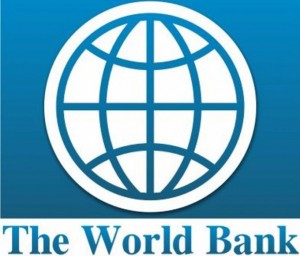World Bank approves $550m support for Ghana budget and debt financing
 The World Bank today announced a total of $550 million in financial support to Ghana. The two types of financing would go into budget support and future external debt financing.
The World Bank today announced a total of $550 million in financial support to Ghana. The two types of financing would go into budget support and future external debt financing.
In a news release issued Wednesday July 1, 2015, and copied to ghanabusinessnews.com, the Bank says its Board of Executive Directors today approved a $150 million budget support for the country.
The credit it says is from the International Development Association (IDA), and supports the First Macroeconomic Stability for Competitiveness and Growth Development Policy Financing (DPF), the first of three development policy financing operations aimed at helping the Government of Ghana stabilize its economy and shore up fiscal control by implementing financial policies and processes that are transparent and predictable.
“The Board also approved IDA’s very first landmark Policy-Based Guarantee (PBG) of up to $400 million for Ghana, which may be used to support Ghana’s future external debt financing,” it says.
The World Bank says it is deploying the financing to ensure that there is a significant change in the amortization profile of Ghana’s current debt.
“A Bank guarantee is a critical instrument in such circumstances as it leverages limited IDA resources: $100 million of IDA resources allocated to Ghana would allow the deployment of a $400 million PBG supporting up to a $1 billion financing by Ghana,” it says.
After a period of high and sustained growth, the Ghanaian economy experienced considerable turbulence reflected in high twin deficits and low growth.
The twin deficits exceeded 10 percent of GDP, and GDP growth collapsed to 4 percent last year after reaching 14 percent in 2012. Ghana was hit by a series of external and domestic shocks which have shaken its economy fundamentals very hard. Consequently, international reserves dwindled, the Cedi depreciated, public debt rose quickly, and interest rates rose sharply. Policy uncertainty prevailed and real economic growth slumped.
“A major obstacle to the restoration of macroeconomic stability in Ghana is the level and composition of government debt: total debt had risen to 65 percent of GDP at the end of 2014 and amortizations have almost doubled from what they were two years ago,” the Bank notes.
By Emmanuel K. Dogbevi
